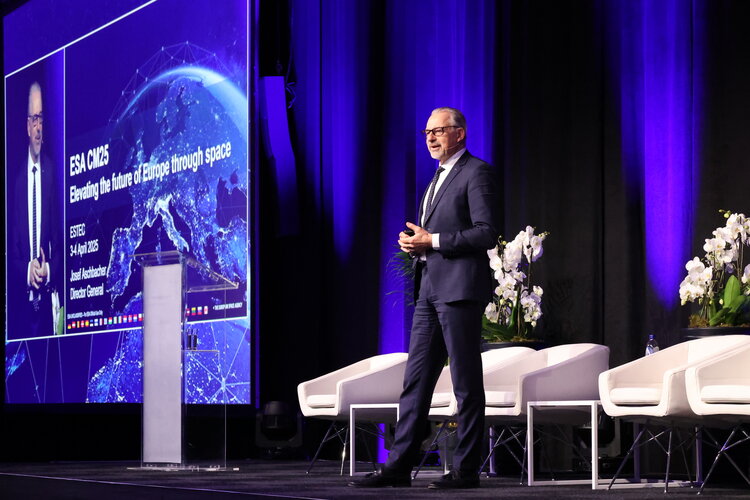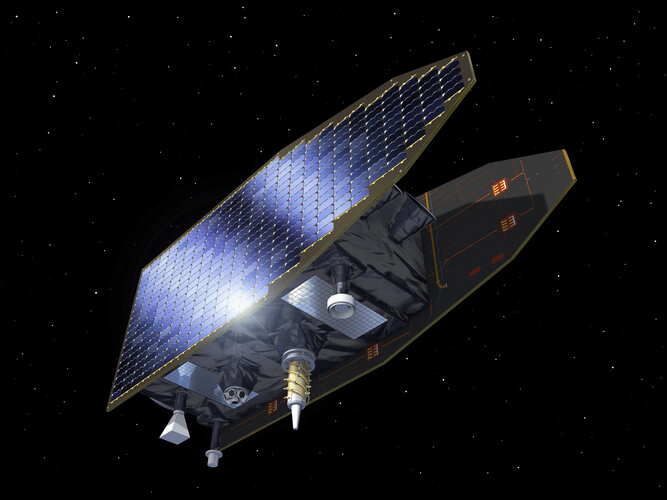Smartphone sensor array reimagined as ultra-precise antimatter imaging system
Monday, 07 April 2025 11:31 In a major advance for antimatter research, scientists from CERN's AEgIS collaboration have engineered a groundbreaking imaging system by adapting the image sensors found in mobile phone cameras. The innovation aims to provide unprecedented spatial resolution in tracking the annihilation of antihydrogen particles, a vital step toward precisely measuring how antimatter responds to Earth's gravity
In a major advance for antimatter research, scientists from CERN's AEgIS collaboration have engineered a groundbreaking imaging system by adapting the image sensors found in mobile phone cameras. The innovation aims to provide unprecedented spatial resolution in tracking the annihilation of antihydrogen particles, a vital step toward precisely measuring how antimatter responds to Earth's gravity Sierra Space advances secure GPS tech for US Space Force initiative
Monday, 07 April 2025 11:31 Sierra Space has successfully showcased its Resilient GPS (R-GPS) satellite technology, a critical advancement for the U.S. Space Force's efforts to strengthen national defense through more robust navigation systems. Developed in partnership with General Dynamics Mission Systems, the demonstration validated the generation of all necessary GPS navigation signals for the R-GPS mission, addressing
Sierra Space has successfully showcased its Resilient GPS (R-GPS) satellite technology, a critical advancement for the U.S. Space Force's efforts to strengthen national defense through more robust navigation systems. Developed in partnership with General Dynamics Mission Systems, the demonstration validated the generation of all necessary GPS navigation signals for the R-GPS mission, addressing Potential NASA Earth science cuts highlight budget uncertainty
Monday, 07 April 2025 10:58
Some NASA Earth science missions have been told to prepare termination plans given the potential for major budget cuts in the agency’s overall science activities.
China’s megaconstellation launches could litter orbit for more than a century, analysts warn
Monday, 07 April 2025 10:48
China’s construction of a pair of communications megaconstellations could cloud low Earth orbit with large spent rocket stages for decades or beyond, according to analysts.
Space Symposium 2025
Monday, 07 April 2025 07:40The global space industry’s largest annual conference is happening April 7-10 at the Broadmoor Hotel in Colorado Springs, Colorado. Space Symposium coverage sponsor
The post Space Symposium 2025 appeared first on SpaceNews.
ESA shares space proposals with industry
Monday, 07 April 2025 06:25
Europe’s space industry gathered at the European Space Agency (ESA) in the Netherlands on 3–4 April to gain insights into the future of space in Europe.
Perfecting Payloads: Raytheon Uses Digital Engineering to Unlock the Next Generation of Remote Sensing
Monday, 07 April 2025 02:19
Humans have excellent vision. Compared to most animals, they can see longer distances with more colors and finer details.
Blue Origin plans an all-female space flight—but astronaut memoirs reveal the cost of being exceptional
Sunday, 06 April 2025 20:00This request seems a bit unusual, so we need to confirm that you're human. Please press and hold the button until it turns completely green. Thank you for your cooperation!
Press and hold the button
If you believe this is an error, please contact our support team.
185.132.36.159 : 033f7d7d-c0c5-4ed1-952b-4ec97286
DORIS joins ESA’s Genesis mission
Sunday, 06 April 2025 17:37
The second Genesis Science Workshop, held on 3 and 4 April in Matera, Italy, brought together the ESA Genesis team, industry experts and scientists from the international community to discuss the mission’s progress, including the latest satellite design evolutions, and prepare for the most extensive science exploitation possible. ESA and the French Space Agency CNES signed a contract during the event, confirming that the fourth geodetic technique, DORIS, will join the mission.
Aetherflux raises $50 million for space-based solar power
Sunday, 06 April 2025 14:56
A startup taking an alternative approach to space-based solar power has raised $50 million as it works towards a first demonstration mission next year.
Missile Defense Agency opens door to commercial firms for “Golden Dome” project
Sunday, 06 April 2025 13:00
A conference later this month will explore space-interception concepts, with particular interest in boost-phase capabilities.
The post Missile Defense Agency opens door to commercial firms for “Golden Dome” project appeared first on SpaceNews.
NASA seeks proposals for two private astronaut missions to ISS
Friday, 04 April 2025 22:40
NASA’s latest call for proposals for private astronaut missions to the space station opens the door to having those missions commanded by someone other than a former NASA astronaut.
Space companies swept up in far-reaching trade war
Friday, 04 April 2025 20:38
Space companies joined heavy stock market declines across the board as governments started responding to sweeping U.S.
SpaceX, ULA, Blue Origin win $13.7 billion in U.S. military launch contracts through 2029
Friday, 04 April 2025 20:38
The contracts, announced April 4 by the U.S.
Fram2 completes polar orbit private astronaut mission
Friday, 04 April 2025 16:55
A Crew Dragon spacecraft splashed down off the California coast April 4, wrapping up a three-and-a-half-day private astronaut mission in polar orbit.
